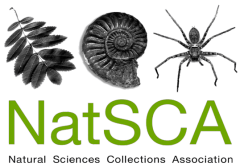-
The FISH (Fossils In SHropshire) project at Ludlow: digitising a superb regional geology collectionKeywords: geology, digitisation, local authority museum, virtual access
Local Authority Museum Services in the West Midlands have been subject to significant cuts back since 2012 with large numbers of staff made redundant, sites closed and further savings yet to be made.
In 2014, the purpose built Ludlow Museum Resource Centre and Library, opened in 2003, was under serious threat of imminent and permanent closure. The facility houses the county collections of geology, biology, social history, archaeology and most of the art collection of the Shropshire Council Museum Service. The collections are both large and of significant historical interest since they originated with the Ludlow Natural History Society established in 1833.
In 2015 the curatorial and administrative staff based at the centre, were made redundant. The Friends of Ludlow Museum lobbied hard and were successful in achieving a reprieve on the closure and a £250,000 award from Libor fines. This award, overseen by The Natural History Museum, was designed to support a digitisation project on the geology collection that would allow the collection to remain accessible in the short term by basing a project team at the centre and in the longer term through on-line digital access.
In April 2016, a team of consultants started work on the project. The entire team had previously worked at the facility, so returning to work as free lance consultants required a change of mind set, and approach. Shropshire Council also appointed a graduate trainee curator on a short term contract to be based at the centre.
The Friends of Ludlow Museum had not previously administered a large scale project of this magnitude and this also represented a new way of working for the Council Museum Service. Project management and reporting systems had to be devised and put in place to allow the project to operate smoothly.
Nine months in, the threat of closure of the site, firstly for March 2017 then March 2018 seems to have receded and the piloting and test phases have been completed. The project is now concentrating on creating high quality digital images that will allow virtual access to the collection long term. The team are also working with the Friends on additional funding bids.
